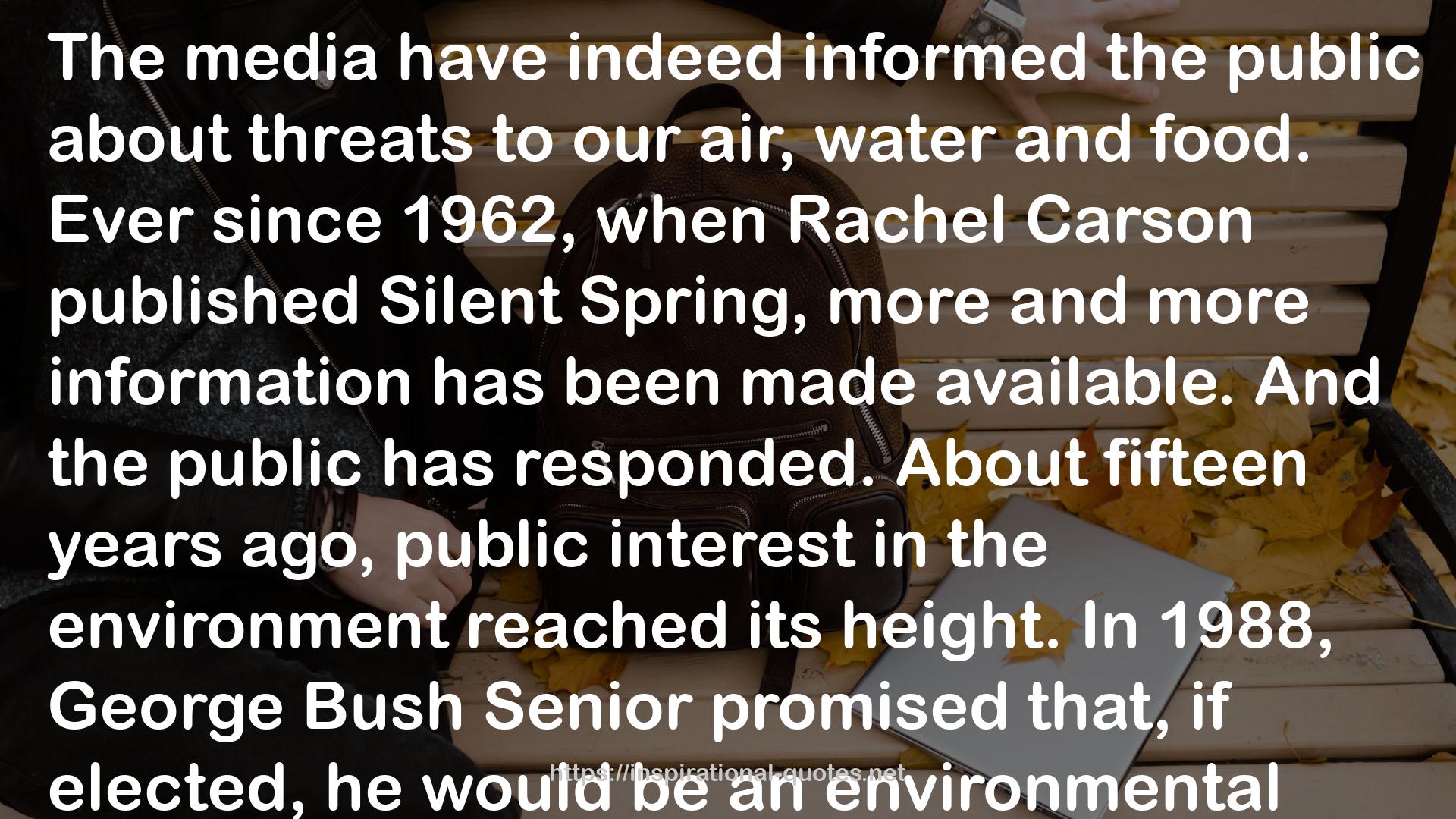" The media have indeed informed the public about threats to our air, water and food. Ever since 1962, when Rachel Carson published Silent Spring, more and more information has been made available. And the public has responded. About fifteen years ago, public interest in the environment reached its height. In 1988, George Bush Senior promised that, if elected, he would be an environmental president. In the same year, Canadian Prime Minister Brian Mulroney was re-elected, and to indicate his ecological concern he moved the minister of the environment into the inner Cabinet. Newly created environment departments around the world were poised to cut back on fossil-fuel use, monitor the effects of acid rain and other pollutants, clean up toxic wastes, and protect plant and animal species. Information about our troubled environment had reached a large number of people, and that information, as expected, led to civic and political action. In 1992, it all reached its apex as the largest-ever gathering of heads of state in human history met at the Earth Summit in Rio de Janeiro. “Sustainable development” was the rallying cry, and politicians and business leaders promised to take a new path. Henceforth, they said, the environment would be weighed in every political, social and economic decision. Yet only two weeks after all the fine statements of purpose and government commitments were signed in Rio, the Group of Seven industrialized nations met in Munich and not a word was mentioned about the environment. The main topic was the global economy. The environment, it was said, had fallen off the list of public concerns, and environmentalism had been relegated to the status of a transitory fad. "
― David Suzuki , From Naked Ape to Superspecies: Humanity and the Global Eco-Crisis
